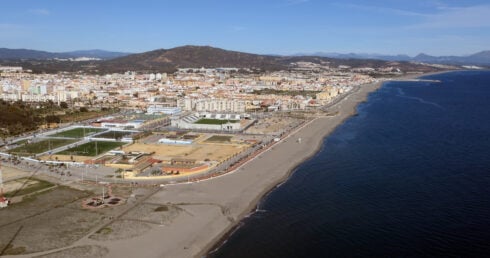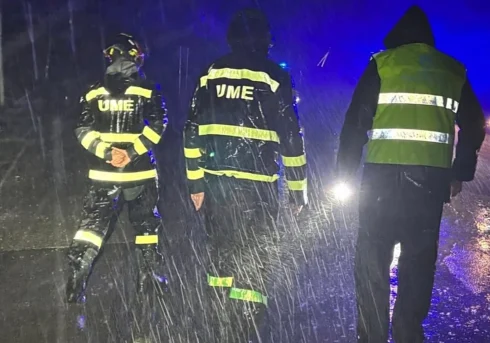THE Spanish Navy has been on alert after the number of Russian warships and merchant vessels passing through the Strait of Gibraltar has surged by 50% this year.
Spain’s Ministry of Defence refused to confirm the numbers for ‘security reasons’, but high-ranking military sources told El Pais that it was in the ‘many hundreds’.
They are thought to be transporting weapons and military equipment from ports in the Baltic, such as Kaliningrad and St. Petersburg, through the 17km-wide Strait to Russia’s naval base in Tartus, Syria.
Alfredo Rodríguez, commander of the Spanish patrol ship Vigía, confirmed that his vessel shadowed two Russian assault ships earlier this year.
READ MORE: Body of British journalist who died in Gibraltar is flown home: Police investigation continues

“We’ve noticed an increase compared to previous years,” he said.
Since Turkey largely blocked Russian naval ships from transiting the Bosphorus Strait between the Black Sea and Mediterranean, Moscow has turned to the Arctic and Baltic routes.
It means that hundreds of Russian ships have been passing under the nose of the British Royal Navy based in Gibraltar, home to the Gibraltar Squadron.
The news of so much Russian naval activity in the vicinity of Gibraltar comes at the same time as UK counter terrorism police help investigate the death of British journalist David Knowles – a known Russia critic – on the Rock.
The Spanish Navy has been closely monitoring the Russians, with frigates and other vessels tracking Russian warships and submarines as they pass through Spanish waters.
Spain’s Strategic Defence Outlook for 2024 highlights that while much of Russia’s military focus is on Ukraine, the Kremlin still maintains permanent air and naval bases in Syria, providing access to the Mediterranean.
To sustain its military presence, Russia needs to transport equipment, rotate crews, and repair its warships and submarines, a process that often involves transiting through Spanish and potentially British waters.

The Spanish Navy, alongside NATO allies France and Portugal, is responsible for ensuring Russian vessels comply with the rules of ‘innocent passage’ when passing through the Mediterranean on their way north.
The rules mean that foreign ships can pass through territorial waters as long as they do not threaten peace or security.
Submarines are required to surface, and warships must maintain a steady course without stopping or deviating.
These operations, known as Presence, Surveillance, and Deterrence, are conducted under the command of Spain’s Maritime Operations, based in Cartagena, Murcia.
NATO forces work together to monitor potential threats, with countries such as France, Portugal, and Spain taking turns to track Russian vessels as they pass through the region.
Click here to read more Gibraltar News from The Olive Press.









